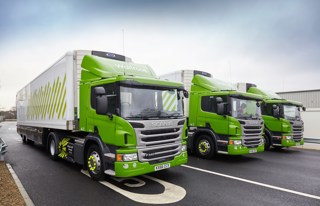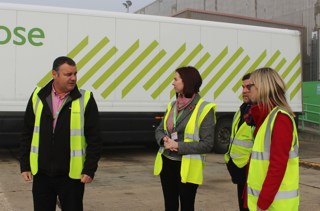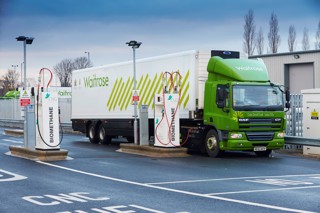Waitrose & Partners will conduct a low emissions trial of a Carrier Transicold's engineless Syberia TWINCOOL multi-temperature refrigeration unit, specified on a natural gas-powered truck.
Funded through Innovate UK, part of UK Research and Innovation, Waitrose & Partners is working alongside researchers from the Centre for Sustainable Road Freight at the University of Cambridge as part of a year-long government low emissions freight and logistics initiative aimed at showcasing how such a combination could dramatically cut fleet emissions.
The trial will document how much Carrier Transicold’s Syberia refrigeration unit, combined with a Scania P280 rigid truck using a natural gas truck engine, can lower CO2 emissions and further improve fleet efficiency.
Waitrose & Partners’ vehicle fleet and engineering manager Simon Gray said: “We have specified Carrier Transicold units for many years and they continually impress us with their performance.
“We wanted to put the engineless solution to the test and monitor performance across a full 12-month period.
"The results of the trial will likely guide our future fleet specification – hopefully allowing us to focus on continuing to improve the sustainability of our transport operations.”
The Syberia TWINCOOL runs entirely on hydro-electric power generated by the truck’s ultra-clean Euro 6 engine, cutting emissions by removing the diesel engine inside the refrigeration unit.
The refrigeration unit is powered by Carrier Transicold’s ECO-DRIVE GenSet, driven by a hydro pump connected to the truck’s power take-off motor.
The hydraulic system drives a generator that delivers electrical power to the host unit and provides a continual, 100% refrigeration capacity even at the truck’s standard idle speed.
Industry testing has shown natural gas vehicles to benefit from lower exhaust and noise emissions compared with diesel engines.
The Syberia unit contributes to this quiet operation with a PIEK-compliant noise level of 60 dB(A) at 100% capacity.




















Login to comment
Comments
No comments have been made yet.